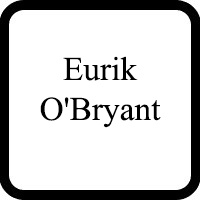Stockton Bankruptcy & Debt Lawyer, California
Sponsored Law Firm
-
 x
x

Click For More Info:
-
Fitzgerald & Campbell, APLC
400 N. Tustin Avenue Suite 401 Santa Ana, CA 92705» view mapBankruptcy & Debt Lawyers Who Solve Serious Problems
We are a motivated, respected, and experienced law firm that provides affordable services that get results.
800-732-9061
Simran Singh Sekhon
Business, Bankruptcy, Trademark, Contract, Wills & Probate
Simran Sekhon is a practicing lawyer in the state of California.
Eurik O'Bryant
✓ VERIFIEDBankruptcy & Debt, Wills & Probate, Intellectual Property, Landlord-Tenant
Eurik is a shareholder at Sekhon & O’Bryant specializing in the practice of contested trust and estate matters, probate administration, commercial l... (more)
James R. Mehlhaff
Business Organization, Family Law, Collection, Banking & Finance
Status: In Good Standing
FREE CONSULTATION
CONTACTRichard L. Schneider
Accident & Injury, Bankruptcy & Debt, Estate, Lawsuit & Dispute
Status: In Good Standing
FREE CONSULTATION
CONTACTLubna K Jahangiri
Commercial Real Estate, Employment Contracts, Business, Consumer Bankruptcy
Status: In Good Standing Licensed: 23 Years
Diane Anderson
Bankruptcy & Debt, Divorce & Family Law, Estate, Family Law, Wills & Probate
Status: In Good Standing Licensed: 18 Years
Peter Thomas Koulouris
Divorce & Family Law, Family Law, Divorce, Bankruptcy & Debt, Bankruptcy
Status: In Good Standing Licensed: 30 Years
David Michael Spieker
Accident & Injury, Bankruptcy & Debt, Criminal, Estate, Immigration
Status: In Good Standing Licensed: 23 Years
FREE CONSULTATION
CONTACT Gregory Fitzgerald Santa Ana, CA
Gregory Fitzgerald Santa Ana, CA AboutFitzgerald & Campbell, APLC
AboutFitzgerald & Campbell, APLC Practice AreasExpertise
Practice AreasExpertise


